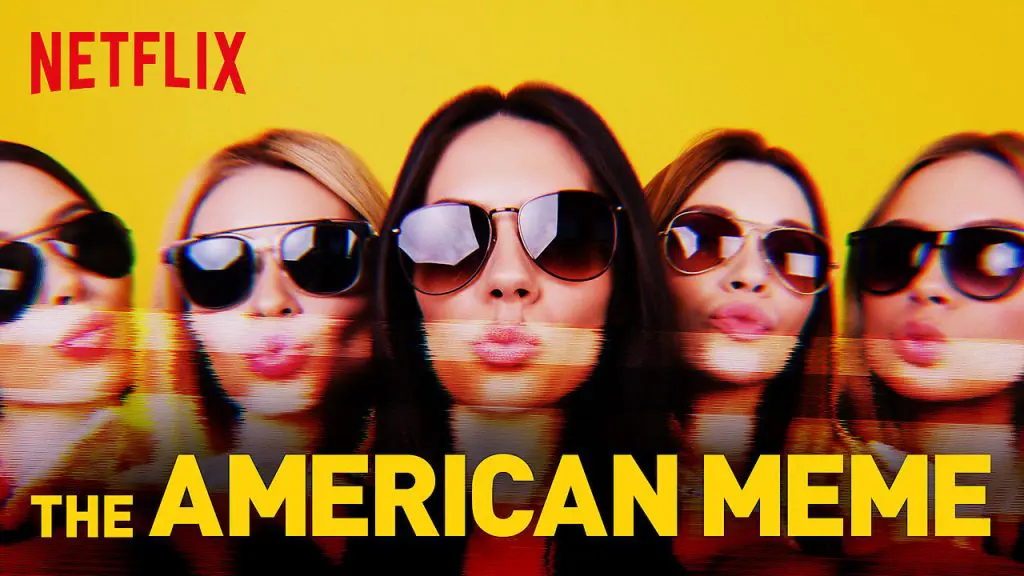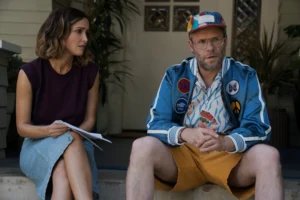Summary
While occasionally eye-opening, The American Meme is a well-made documentary that caters to a niche demographic and focuses on subjects it is incredibly difficult to feel empathy for.
There’s a common and very silly misconception about critics that posits their job is to be objective; to put aside their taste, their preferences, and their beliefs, and to become a detached and unfeeling consumer tool. Rarely is the inaccuracy of this idea made more obvious than with a film like The American Meme, a feature documentary by Bert Marcus which debuted at the Tribeca Film Festival and on Netflix today. I could say that the film is well-made, which would be true, and that it is sometimes eye-opening, which would also be true. But I’d be lying if I said I liked it, or that I particularly cared about its subjects. And that should matter.
The American Meme wants to reflect on cultivated viral fame and the seedier, soul-sucking underside of social media posturing, and it does so by focusing on over a half-dozen “influencers” (a term I despise) and honing in on four of them in particular: Paris Hilton, Brittany Furlan, Josh Ostrovsky aka “The Fat Jew”, and Kirill Bichutsky, a provocative party animal who calls himself “The Slut Whisperer”. Each of these dated stars treats their open-wound business model with varying degrees of awareness and cynicism, but what unites them all is that the person they’re ultimately discussing is the one they present to the world – never, it seems, who they really are.
Now and again it might seem like the interviewees are being candid, but there are always clues that it’s just another extension of a brand identity; that whenever Kirill talks about insomnia and alcoholism, or Paris Hilton discusses having her sex tape leaked, that they’re simply exaggerating the aspects that seem most human and least manufactured. At the same time Hilton is positioned as a kind of patient zero of the new social media age, and her desperation after having been surpassed by her former protégé Kim Kardashian is palpable. She has no notion of irony, and oftentimes neither does Marcus’s film, which sometimes attempts a kind of grave sentimentality that borders on satire.

And you can see the patterns begin to repeat themselves. A common one is the idea of people’s careers being chewed up and spat out just as soon as whatever platform they found fame on goes under. Brittany Furlan was famous on Vine, for instance, and when that app disappeared, so did her clout. She’s currently in a relationship with Tommy Lee, who is known not just as the drummer of Mötley Crüe but also for having made a very well-known sex tape with Pamela Anderson. Do these people all hang out in the same bars?
The reality, of course, is that people like this are drawn to one another not because of a shared plight, but because they’re all doing the same thing: clinging to whatever app, trend, relationship or brand will allow them to keep receiving validation. Their lives are judged entirely by how they look from the outside; everything they say and do is calibrated for the benefit of a follower count that continues to rise as their authenticity and sense of self continually plummets. At one point Hilton looks over old photographs that include her mother, and the naively hopeful among us might assume that it’s building towards a moment of frankness – perhaps she still covets that absence of truly human connection, of love and companionship that is unfiltered. Then she says she’s going to take a picture of it for Throwback Thursday.
The more interesting story about all of this is one that The American Meme isn’t interested in telling; what happens to those who are consumed by social media celebrity unwittingly, and what ensues when they don’t give themselves over to it so completely. This is, instead, a lens through which to view those who have strived to be exactly where they are – in front of a camera that never stops rolling, living a manicured life for an audience that never stops demanding more and more of their humanity. Behind that camera, they thrive. But behind their eyes, there’s nothing at all.




